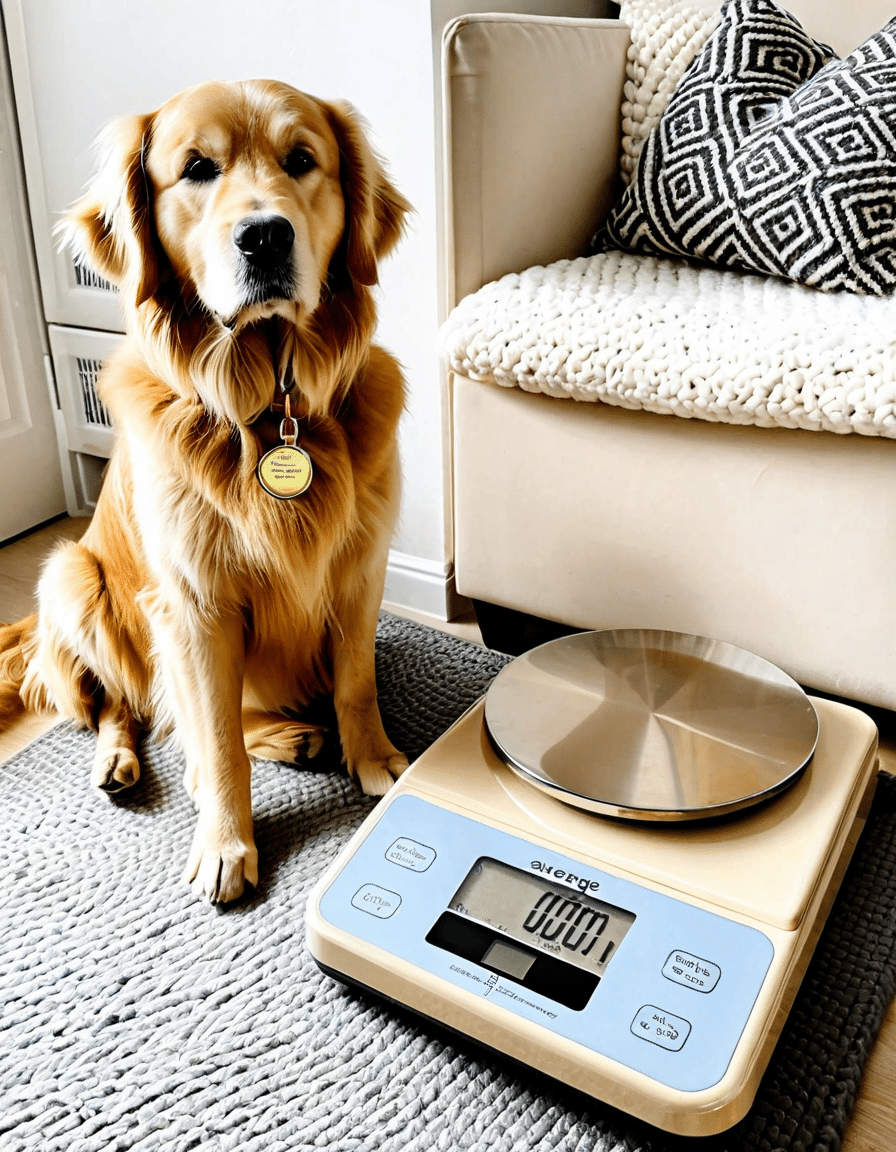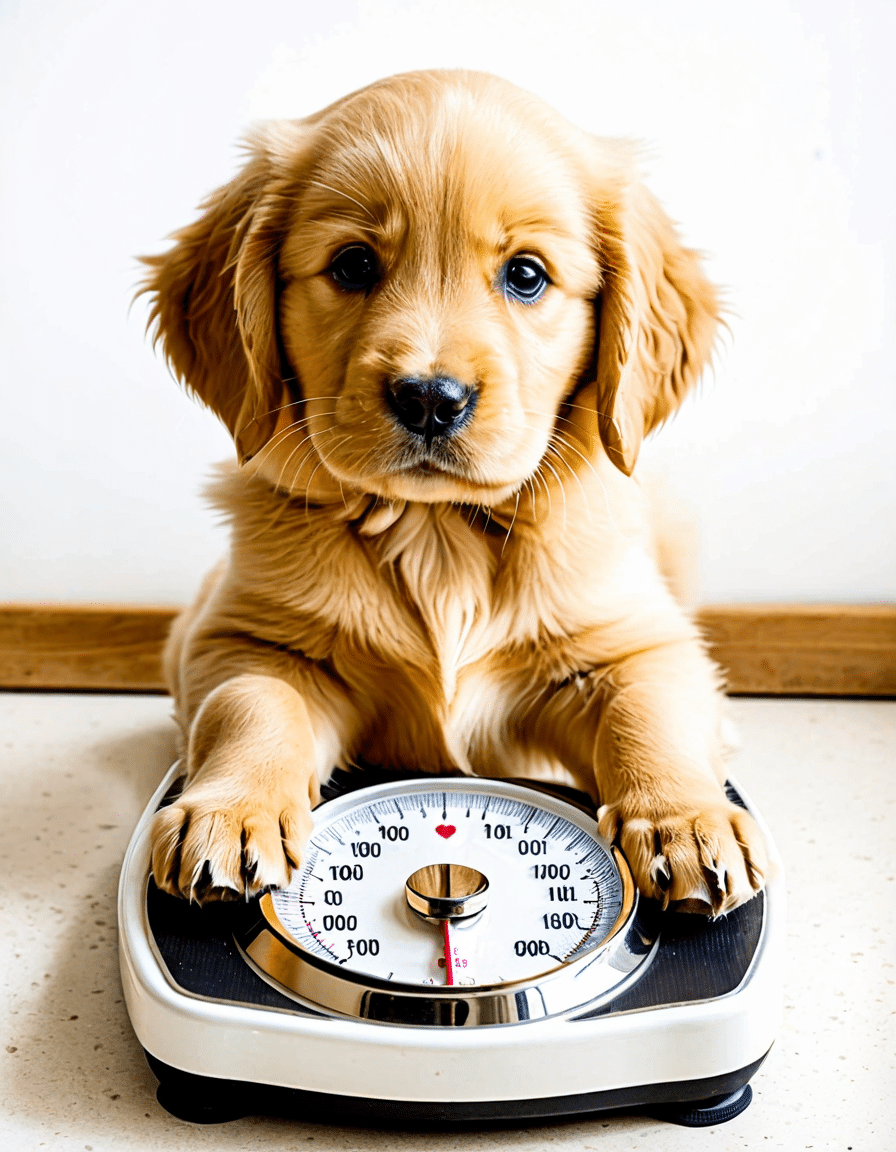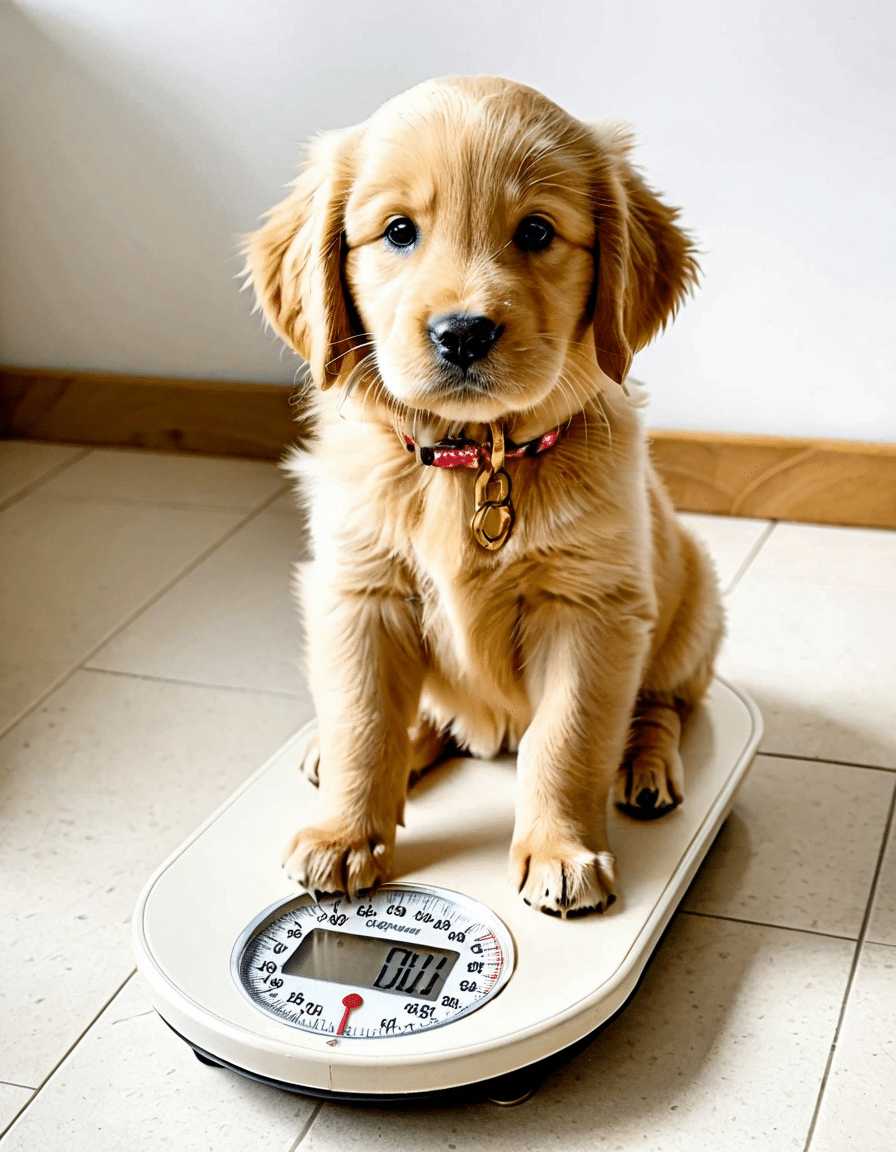Golden Retrievers are one of the most beloved dog breeds on the planet. Their friendly disposition and remarkable intelligence make them a favorite among families and individuals alike. But when considering bringing a Golden Retriever into your home, understanding the average golden retriever weight is essential. This knowledge serves as a foundation for health assessments, dietary requirements, and overall well-being. In this guide, we’ll dive deep into the average weight range for Golden Retrievers, explore the factors that influence their weight, and discuss how weight relates to their average lifespan.
Understanding Average Golden Retriever Weight
Typically, the average golden retriever weight falls within a specific range. For adult males, the weight usually hovers between 65 to 75 pounds, while females generally weigh between 55 to 65 pounds. However, these numbers can fluctuate based on various factors, including genetics, diet, and health conditions. The variation becomes more pronounced when you consider the differences among individuals, making close observation crucial for both new and current pet owners.
Keeping track of your dog’s weight is more than just a number on the scale; it can provide insights into their overall health. A healthy weight range is integral for both physical fitness and emotional health, helping to maintain that playful, exuberant spirit that Golden Retrievers are known for. This understanding lays a solid groundwork for responsible dog ownership, ensuring that your furry friend leads a long and healthy life.

Factors Influencing Golden Retriever Weight
Genetics and Breeding
Just like humans, a dog’s genetics play a significant role in determining its weight. Purebred Golden Retrievers from reputable breeders typically showcase a more standardized weight range. For instance, breeders like Tropical Goldens and GoldStar Retrievers often select for qualities that contribute to consistent weight, giving potential owners a clear roadmap for what to expect as their puppy matures. A well-bred dog is generally more likely to stay within healthy weight parameters, making careful selection key for prospective Golden Retriever owners.
Diet and Nutrition
The food you give your Golden Retriever is directly related to their weight. High-quality dog food—brands such as Hill’s Science Diet and Royal Canin, which are specifically formulated for Golden Retrievers—can assist in maintaining optimal weight. Observing portion sizes is crucial; even the healthiest dog food can lead to obesity if fed in excessive amounts. Combine proper nutrition with a structured feeding schedule to promote a balanced lifestyle.
Exercise and Activity Level
Golden Retrievers are known for being highly energetic. They need at least 60 minutes of physical activity each day to help manage their weight effectively. Owners can consider various sports like agility training or swimming, which not only support weight management but also enhance the bond shared with their dog. Take a trip to local parks or engage in fun activities like dock diving, where dogs can showcase their skills and burn off some energy. It’s a win-win situation for both dog and owner!
Average Golden Retriever Weight by Age
As Golden Retrievers age, their weight expectations change. The following breakdown will help you understand what to expect as your pet matures:

The Link Between Weight and Golden Retriever Average Lifespan
Maintaining a healthy weight is fundamental for the golden retriever average lifespan, which typically ranges from 10 to 12 years. Surprisingly, being overweight can lead to a multitude of health issues such as hip dysplasia, heart disease, and diabetes—conditions that can significantly shorten a dog’s lifespan. Research indicates that Golden Retrievers kept at their optimal weight can often live up to two years longer compared to those who are not.
That’s why keeping an eye on your dog’s weight is incredibly important. Regularly assessing their weight and making necessary adjustments to diet and exercise can enhance their quality of life significantly. This commitment not only adds years to their lives but also ensures those years are filled with vitality and happiness.
Expert Tips for Maintaining a Healthy Weight
Make routine check-ups a habit. Your veterinarian can offer guidance on your dog’s weight management and nutritional needs.
Create a daily feeding routine. Measuring food portions ensures that your Golden Retriever receives the right amount of nutrition without overindulging.
Incorporate a variety of engaging physical activities, like hiking or scheduled doggy playdates, to enrich their lives and burn calories.
Keep track of any weight fluctuations and tweak diets or exercise as needed. Weighing your Golden Retriever monthly can keep you informed about their weight status.
Consider using pet fitness trackers to monitor daily activity levels. These tools can help ensure your dog remains in a healthy weight range.
In conclusion, understanding the average golden retriever weight goes beyond simply obtaining numbers; it reflects your pet’s health and longevity. By focusing on a balanced diet, adequate exercise, and regular veterinary support, you can contribute significantly to ensuring your Golden Retriever enjoys a fulfilling life. Remember, an informed and engaged pet owner is the key to a happy, healthy companion!
Average Golden Retriever Weight: Fun Trivia and Interesting Facts You Need to Know
Getting to Know Golden Retrievers
When thinking about the average golden retriever weight, it’s fascinating to note that these friendly furballs typically weigh between 55 to 75 pounds. This range can be influenced by factors such as diet, exercise, and genetics. For example, did you know that just like actors can shine on-screen, such as Samantha Bond, golden retrievers often grab attention with their charming personalities? Their weight is just one part of their lovable package, contributing to their reputation as perfect family pets.
Fun Digressions into the Golden World
Speaking of family pets, golden retrievers are not just great companions; they can also have some unusual quirks. For instance, their love for the water is legendary! If you’re curious about something a bit more exotic, take a look at the care tips for a freshwater aquarium—it’s( amazing how different types of pet care can share similarities, like requiring the right environment to thrive. The variety in pet sizes and needs showcases the diversity of the animal kingdom.
Health and Well-being Connections
Aside from their straightforward care needs, golden retrievers tend to face health issues tied to their weight. Keeping them fit is essential. A simplistic approach of using common household items, like wondering if can You use dawn dish soap on Dogs, shows how attention to detail can impact their health. While balancing their meals, remember that just like trying to find the right Pokémon in Pokemon Infinite fusion, finding the perfect weight involves trial and thoughtful consideration.
The cat ear polyp is another reminder of how unique health concerns can pop up in our furry friends. Being aware of such conditions becomes a crucial part of ensuring your golden leads a healthy, vibrant life. Whether you’re embracing your pet’s playfulness or keeping a watchful eye on their weight, understanding what’s involved can make a big difference in their well-being.
In conclusion, weighing the average golden retriever weight gives you insights into their health and happiness. With a little mindfulness and adjustment, you can help your golden retriever live their best life! So next time you’re watching your golden engage in play, just remember, there’s a lot more beneath those charming smiles and wagging tails.






